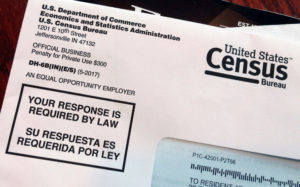
Latino leaders say new information on how the Trump administration decided to add the citizenship question on the 2020 census is the “smoking gun” that backs their assertions that the administration sought to suppress Latino votes.
“You could smell this smoking gun from a mile away,” California Attorney General Xavier Becerra, who has sued over the census citizenship question, told NBC News yesterday. The watchdog group Common Cause stated in court documents that a Republican expert on redistricting helped get the question added to create an electoral advantage for Republican and non-Hispanic white.
According to the group, the expert, Thomas Hofeller, conducted a 2015 study using Texas House districts with large Latino populations to determine that including the citizenship question “would significantly harm the political power of Latino communities.” “The vague rumors about partisan attempts to suppress minority votes — this is a smoking gun. This is right up in your face. This is exactly why it was created,” Rey López-Calderón, executive director of California Common Cause, said.
Latino leaders interviewed said they were not shocked by the revelation that adding the question was rooted in an attempt to suppress minority votes, what stunned them is to have proof, they said. When racial gerrymandering occurs, “normally we almost catch them. They say, ‘No, this isn’t racial gerrymandering, it is partisan,’” López-Calderón said. “This particular trove of documents just shows they really, really were looking at race. It was race in order to get the partisan advantage.”
Political districts for elected offices at the state and local levels are drawn based on population and some conservatives and Republicans want the districts drawn and House seats distributed based on U.S. citizen populations, rather than on general population numbers. Three federal judges have ruled that Commerce Secretary Wilbur Ross’ rationale for adding the question was unconstitutional and violated federal administrative law.
One of the judges, in New York, called Ross’ decision “arbitrary and capricious” because it would “materially reduce response rates among immigrant and [Latino] households.” The Supreme Court is winding down its current session and could potentially rule on the inclusion of the question on the 2020 Census and whether it violates the Constitution.

Recent Comments